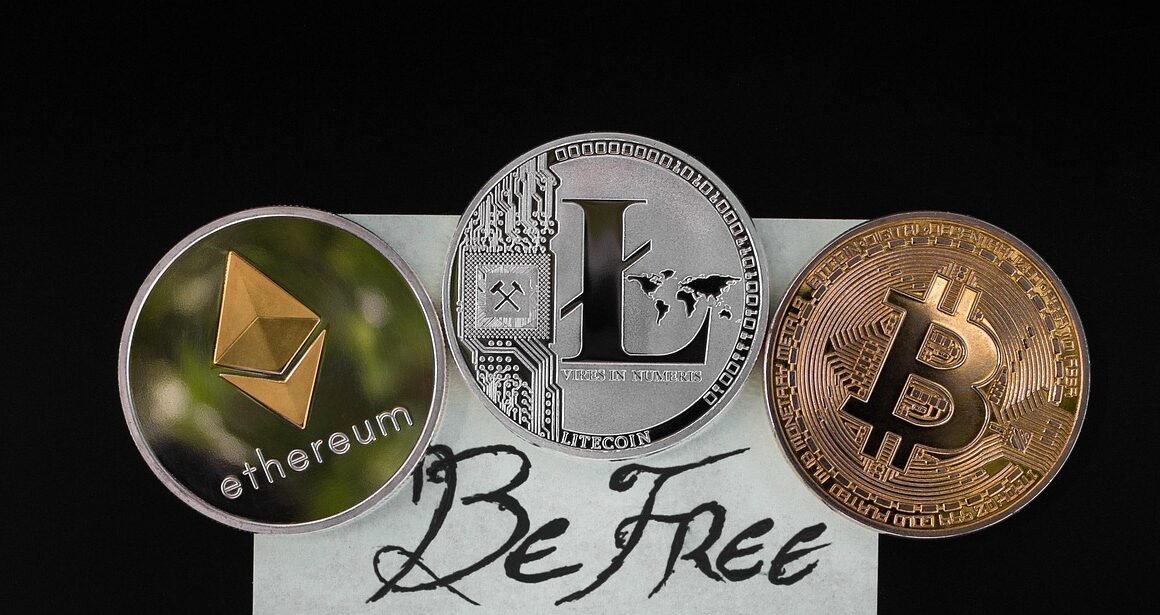Smart contracts: the digital agreements revolutionizing how we interact, exchange value, and conduct business online. These self-executing contracts, stored on a blockchain, are transforming industries by offering transparency, security, and efficiency. Let’s dive into the intricacies of smart contracts and explore their vast potential.
What are Smart Contracts?
Definition and Core Principles
A smart contract is a self-executing contract with the terms of the agreement directly written into code. Once deployed on a blockchain, these contracts automatically execute when predetermined conditions are met. Think of them as digital vending machines: you input the required conditions (money), and the output (product) is automatically dispensed if those conditions are satisfied.
- Key Characteristics:
Decentralized: Operates on a distributed network, eliminating single points of failure.
Immutable: Once deployed, the code cannot be altered, ensuring trust and predictability.
Transparent: The code and execution details are publicly visible on the blockchain.
Autonomous: Executes automatically without the need for intermediaries.
* Secure: Benefits from the blockchain’s inherent security features, such as cryptography.
How Smart Contracts Work: A Step-by-Step Explanation
The execution of a smart contract follows a specific process:
Example: Consider a simple smart contract for escrow services. The buyer sends funds to the contract. The contract holds the funds until the seller delivers the goods or services. Upon confirmation of delivery by the buyer, the contract automatically releases the funds to the seller. If the seller fails to deliver within a specified timeframe, the contract returns the funds to the buyer.
Benefits of Using Smart Contracts
Increased Efficiency and Reduced Costs
Smart contracts automate many processes that traditionally require manual intervention, leading to significant improvements in efficiency and cost reduction.
- Automated Processes: Eliminate manual steps and human error, leading to faster transaction times.
- Reduced Intermediary Fees: Remove the need for third-party intermediaries, such as lawyers, brokers, or notaries. According to a recent report by McKinsey, smart contracts can reduce transaction costs by up to 30% in certain industries.
- Faster Dispute Resolution: Embedded logic can automatically resolve disputes based on predefined rules.
Enhanced Transparency and Security
The transparent and immutable nature of smart contracts enhances trust and security.
- Immutable Records: Once deployed, smart contracts cannot be altered, ensuring data integrity.
- Increased Trust: All parties can verify the contract’s terms and execution history on the blockchain.
- Reduced Fraud: The automated nature of smart contracts minimizes the risk of fraud and manipulation.
- Improved Data Security: Blockchain’s cryptographic security protects against unauthorized access and tampering.
Automation and Programmability
Smart contracts enable the creation of sophisticated applications and workflows.
- Programmable Logic: Complex business rules and conditions can be encoded into smart contracts.
- Integration with other Systems: Smart contracts can interact with other blockchain applications and external data sources (oracles).
- Customizable Workflows: Tailored solutions can be created to meet specific business needs.
Use Cases for Smart Contracts Across Industries
Supply Chain Management
Smart contracts can revolutionize supply chain operations by providing end-to-end visibility and automation.
- Tracking and Tracing: Track the movement of goods throughout the supply chain.
- Automated Payments: Automate payments to suppliers based on predefined milestones and conditions.
- Improved Transparency: Enhance transparency and accountability in supply chain operations.
- Example: A smart contract could automatically release payment to a supplier when a shipment reaches a specific location, as verified by GPS data from a trusted oracle.
Finance and Insurance
Smart contracts are transforming the finance and insurance industries by enabling decentralized financial (DeFi) applications and automating insurance claims.
- Decentralized Lending and Borrowing: Enable peer-to-peer lending and borrowing platforms.
- Automated Insurance Claims: Automatically process insurance claims based on verifiable data.
- Algorithmic Trading: Automate trading strategies using smart contracts.
- Example: A decentralized lending platform uses smart contracts to match lenders and borrowers, manage collateral, and automatically distribute interest payments.
Real Estate
Smart contracts can streamline real estate transactions and reduce fraud.
- Automated Property Transfers: Automate the transfer of property ownership.
- Escrow Services: Provide secure and transparent escrow services.
- Reduced Fraud: Minimize the risk of fraud and errors in property transactions.
- Example: A smart contract can automatically transfer property ownership to the buyer once the purchase price is deposited into the contract and all other conditions are met.
Healthcare
Smart contracts can improve data security and interoperability in healthcare.
- Secure Data Sharing: Enable secure and controlled sharing of patient data.
- Automated Contract Enforcement: Ensure compliance with healthcare regulations.
- Improved Interoperability: Facilitate the exchange of data between different healthcare systems.
- Example: A smart contract can grant access to patient records to authorized healthcare providers based on pre-defined conditions and consent.
Developing and Deploying Smart Contracts
Choosing the Right Platform
Several blockchain platforms support smart contract development, each with its own strengths and weaknesses.
- Ethereum: The most popular platform for smart contract development, offering a wide range of tools and resources.
- Solana: Known for its high transaction throughput and low fees, making it suitable for high-performance applications.
- Cardano: Emphasizes security and scalability, using a proof-of-stake consensus mechanism.
- Binance Smart Chain: A fast and cost-effective alternative to Ethereum, compatible with Ethereum Virtual Machine (EVM).
Essential Tools and Languages
Developing smart contracts requires specific tools and programming languages.
- Solidity: The most popular language for writing smart contracts on Ethereum.
- Rust: Increasingly used for smart contract development on platforms like Solana and Polkadot.
- Remix IDE: A web-based IDE for developing and testing Solidity smart contracts.
- Truffle: A development framework for building, testing, and deploying smart contracts.
- Hardhat: Another popular development environment designed for Ethereum smart contract development.
Best Practices for Security and Optimization
Security is paramount when developing smart contracts, as vulnerabilities can lead to significant financial losses.
- Auditing: Have your smart contracts audited by reputable security firms.
- Testing: Thoroughly test your smart contracts before deployment, using various testing frameworks and techniques.
- Formal Verification: Use formal verification methods to mathematically prove the correctness of your code.
- Minimize Complexity: Keep your smart contracts as simple and straightforward as possible to reduce the risk of errors.
- Follow Security Best Practices: Adhere to established security guidelines and best practices for smart contract development.
Conclusion
Smart contracts are poised to transform numerous industries by providing enhanced transparency, efficiency, and security. As blockchain technology continues to mature, smart contracts will play an increasingly important role in shaping the future of business and digital interactions. Understanding the fundamentals of smart contracts, their benefits, and their potential applications is crucial for anyone looking to leverage this powerful technology. By adopting best practices in development and security, we can unlock the full potential of smart contracts and create a more transparent and efficient world.



